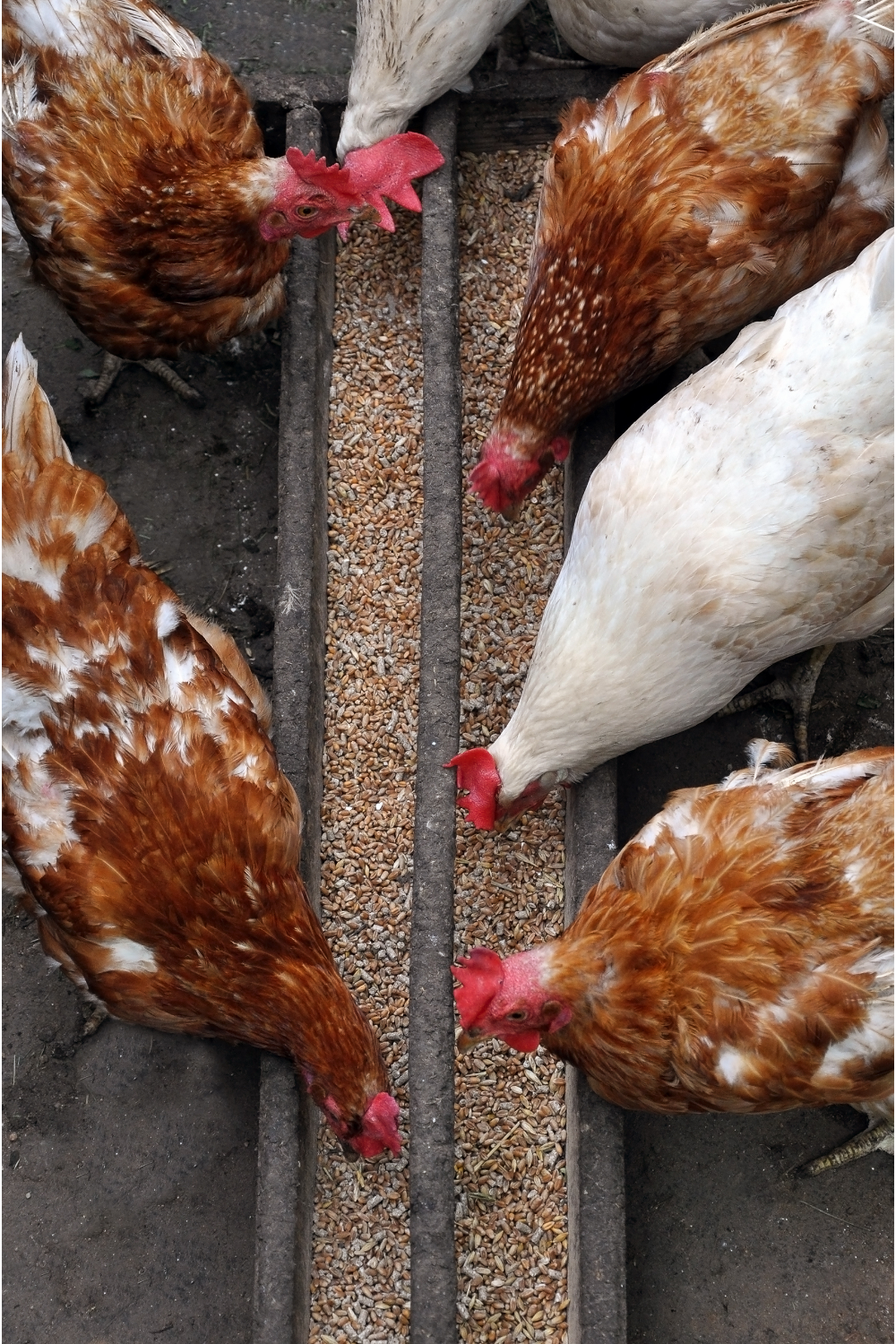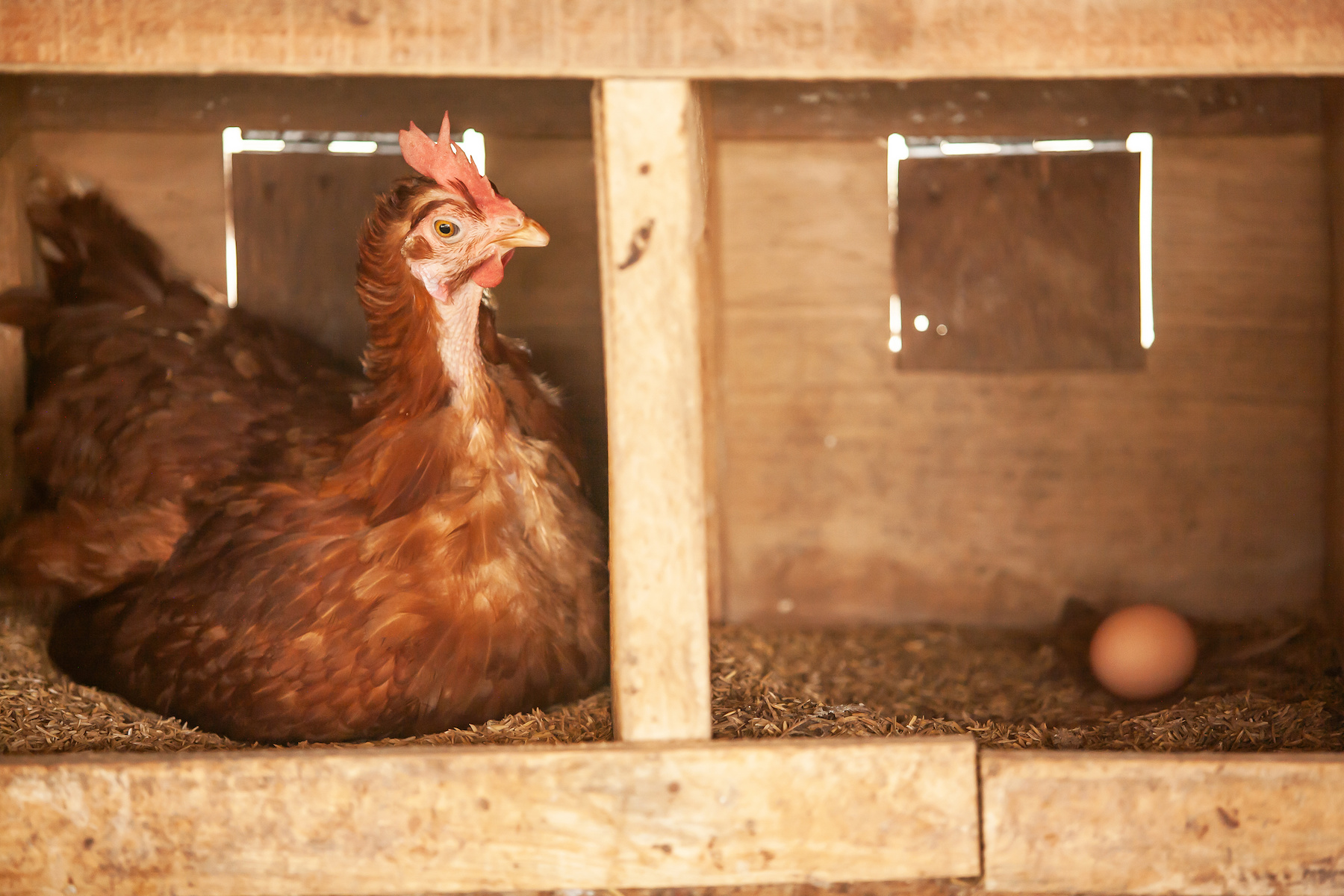If you’ve been trying to get your chickens to lay eggs but they just won’t, you’re not alone. “Chickens wont lay” is a common problem among chicken owners. Luckily, there are a few simple steps you can take to troubleshoot common causes of chickens not laying eggs. This article will provide some tips on how to identify and correct the problem so that your chickens will start laying eggs again.
Causes of Chickens Not Laying Eggs

Stress
Chickens may go off laying eggs due to stress caused by a number of factors, such as a sudden change in environment, an overcrowded coop, or a predator attack. Signs of stress in chickens include decreased appetite, feather loss, and aggression. To reduce stress, make sure the chickens have plenty of access to food and water, create a secure environment, and allow them to have plenty of free-range time.
Lack of Nutrients
Chickens require a good balance of protein, calcium, and other vitamins and minerals for optimum egg production. If chickens are not receiving the proper nutrients, their egg production can be affected. To ensure chickens are getting the right balance of nutrition, provide them with a balanced diet and supplement with natural feed sources such as mealworms and other insects.
Illness
Chickens can be affected by various illnesses that can prevent them from laying eggs. Common illnesses that can lead to a decrease in egg production include coccidiosis, Marek’s disease, and bacterial infections. To reduce the risk of illness, practice good hygiene and biosecurity measures, and keep the coop clean.
Age
As chickens age, their egg production can naturally decline. Egg production usually peaks between 18 and 24 weeks of age and then starts to decline. To encourage egg production in older chickens, make sure they are receiving the proper nutrition and are not under any undue stress.
In conclusion, the most common causes of chickens not laying eggs are stress, lack of nutrients, illness, and age. To ensure your chickens are in the best condition for egg production, provide them with a balanced diet and a safe, secure environment. With proper care, your chickens will soon be back to laying eggs.
How to Resolve Common Causes of Chickens Not Laying Eggs
Reduce Stress
Chickens can become stressed for a variety of reasons, including overcrowding, extreme temperatures, insufficient shelter, and lack of stimulation. These conditions can reduce egg production or stop it entirely. To reduce stress, provide your chickens with enough space to move around, a comfortable temperature, adequate shelter, and environmental enrichment, such as scratching posts and toys.
Provide Nutrient Rich Diet
Nutrition is important for egg-laying chickens and can significantly affect their production. Make sure that your chickens have access to a balanced diet, which should include a variety of grains, fresh vegetables, and protein sources, such as insects and mealworms. Additionally, provide your chickens with a source of calcium, such as oyster shells, to ensure that their eggs are strong and healthy.
Monitor Health
Chickens can stop laying eggs due to illness, so it’s important to monitor their health closely. Check for signs of illness, such as lethargy, decreased appetite, and runny noses, and isolate any sick chickens from the rest of the flock. Additionally, consider getting your chickens vaccinated for diseases, such as Marek’s disease, to keep them healthy and productive.
Consider Age
Age is also a factor in egg production. Young chickens can take up to six months to start laying eggs and may lay infrequently until they are fully mature. Once they reach full maturity, they should produce eggs regularly. On the other hand, older chickens may start to slow down their production as they age. If this is the case, consider supplementing their diet with additional calcium and vitamins.
It’s important to identify the cause of your chickens not laying eggs and take steps to rectify the issue. By reducing stress, providing a nutrient-rich diet, monitoring their health, and considering their age, you can ensure that your chickens will start laying eggs again.
Frequently Asked Questions
What is the ideal temperature for a chicken coop?
A chicken coop needs to be kept at a temperature that is comfortable for the chickens. Too hot or too cold and the chickens will not lay eggs. Here are some tips to help ensure the ideal temperature for your chickens:
- Know the Optimal Temperature: The optimal temperature for chickens should be between 60-65°F (15-18°C).
- Monitor Temperatures: Monitor the temperatures in your coop and adjust accordingly.
- Ventilation: Make sure your coop is well-ventilated, especially in the summer.
- Insulation: Insulate the coop in the winter to help keep the chickens warm.
- Heat Sources: Use heat sources such as lamps and heaters during cold weather.
- Cooling Sources: Use cooling sources such as fans and misters during hot weather.
By following these tips, you can help ensure the ideal temperature for your chickens and get them laying eggs again!
How often should I check for eggs?
It is recommended to check for eggs at least once a day, preferably in the morning. This will help you identify any underlying issues that may be causing your chickens to not lay eggs. If you notice any eggs that are not laid, you can take immediate action to correct the issue. Additionally, checking for eggs regularly can help you monitor the health of your chickens.
What should I do if my chickens are not eating?
Check the feed:
- Make sure the feed is fresh, not moldy or wet.
- Ensure it has the right nutritional balance for your chickens.
- Check that your chickens have access to the feed.
Observe the flock:
- Check for signs of illness or injury.
- See if any birds are being bullied or excluded.
- Check the flock for parasites.
Try different food sources:
- Offer fresh fruits and vegetables.
- Introduce treats like mealworms or sunflower seeds.
- Provide a variety of grains and pellets.
Encourage foraging:
- Offer scattered grain and scratch in the run.
- Provide a shallow dish of sand for the birds to peck.
- Allow the chickens to forage for insects.
Check the environment:
- Ensure the coop has adequate ventilation.
- Make sure the water is clean and easily accessible.
- Provide plenty of light and space.
What should I do if my chickens are losing feathers?
First, identify the cause of the feather loss. Common causes of chickens losing feathers include mites, lice, and feather picking caused by stress or boredom.
Treat for mites and lice. Treat the entire flock with an insecticide or insect growth regulator that is labeled for use on poultry.
Reduce stress and boredom.
- Provide adequate space for the flock.
- Ensure that there is adequate entertainment for the flock, such as perching surfaces, toys, and foraging areas.
- Provide a variety of food sources.
- Ensure that the flock is not exposed to excessive noise or other environmental changes.
Separate feather pickers. If feather picking is caused by stress or boredom, isolating the offending bird(s) may help to stop the feather loss.
What type of feed should I give my chickens to encourage egg production?
- High-quality layer feed: Feed your chickens a high-quality layer feed that is specifically designed for laying hens. This type of feed should contain all the vitamins and minerals necessary for your chicken’s health and egg production.
- Protein: Protein is essential for egg production, so ensure your chickens have access to a protein-rich feed. This can be achieved by supplementing their feed with high-protein treats such as mealworms, cooked eggs, or nuts.
- Calcium: Calcium is essential for healthy eggshells. Provide your chickens with a source of calcium such as crushed oyster shells or limestone.
- Grit: Chickens need grit to help them digest their food. Offer your chickens a source of grit such as sand or crushed granite.
Conclusion
Chickens not laying eggs can be caused by a variety of factors, from poor nutrition to a poor environment. Troubleshooting these issues requires a multi-step process that begins with an examination of the hen’s diet, housing, and environment. After addressing any issues in these areas, supplemental light and artificial hormones can be used to increase egg production. Finally, regular veterinary checkups are recommended to ensure that the birds are in optimal health.
